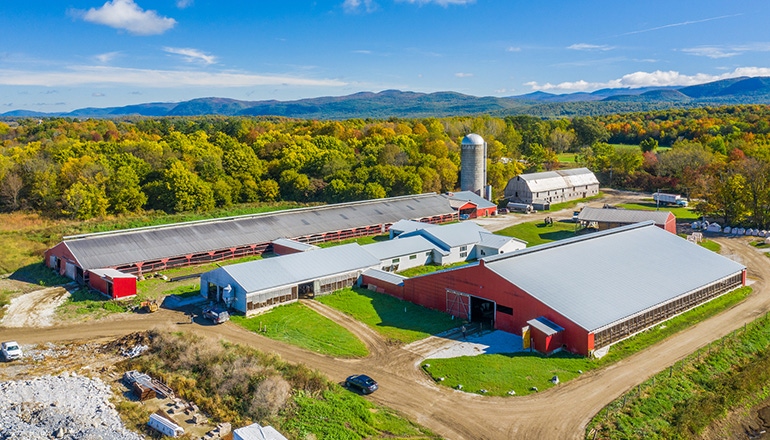The Basics of Anaerobic Digestion with Vanguard Renewables

If food waste was a nation, it would be the third-largest greenhouse gas emitter behind China and the United States, says John Hanselman, founder and CEO of Vanguard Renewables.
The Wellesley, Ma.-based company was founded in 2014 to solve the issue of organic waste - utilize it as a recyclable material to generate renewable energy. The process of anaerobic digestion sounds simple when broken down into just a few words, but it is relatively unknown in the United States.
"I think what we didn't understand was how complex it would be to actually extract that organic fraction from the existing waste streams and how we'd have to actually build lots of capabilities and almost really build an understanding and an education of the consumer base that they actually can recycle organic materials and turn them into renewable energy," Hanselman says.
Once the story of anaerobic digestion is told - how it can sustain farms for future generations and reduce greenhouse gas emissions from food waste - the environmental benefits become clear.
"Creating the relationships with the hauling community and creating the relationships with the generators of the organic waste," he says. "That's been the real challenge over the last seven years."
How It Works
Anaerobic digestion has been happening in the European Union for almost two decades. Vanguard just brought the technology to the United States, Hanselman says. And, it's "pretty straightforward."
Haulers carry solids or liquids - organic materials - from farms to the company's detecting facility where plastics and contaminants are taken out of the stream. Anything that can't be used during the process is diverted elsewhere.
The organic matter left after separating is much like a slurry format. Hanselman describes it as the consistency of oatmeal. The slurry is placed into a series of tanks.
"The easiest way to think about it is like a million-gallon Instant Pot," he says.
The material is combined with manure from the farm which contains microorganisms that reside in the gut flora of cows. The pot is set to "cook" at 30 days at 105 degrees.
During that time, the "little bugs" eat the food waste and create methane. The methane bubbles to the top of the organic stew. The gas is then collected and eventually becomes renewable natural gas. But, that's not all.
"It's really exciting because once we've extracted that renewable natural gas from the food waste slurry, we're left with this high nutrient, low carbon organic fertilizer that we actually give to our farm partners," Hanselman says.
Farmers are then able to replace 100% of their reliance on synthetic fertilizers with the organic substitute.
Hanselman adds that it's "something that we didn't really understand the power of and how important that is to soil health and to reducing the costs for our farm hosts."
The organic fertilizer is a massive secondary benefit because it creates a brand link to regenerative farming, a huge issue on the radars of Vanguard's partners such as Starbucks, Unilever and Dairy Farmers of America.
The resulting renewable natural gas is injected into gas pipelines and used as vehicle fuel or to power homes and businesses.
"We see fantastic possibilities to actually fuel the vehicles that are bringing us waste with our own renewable CNG," Hanselman says. "And that's something I think that we'll explore more and more in the future too."
Hear more from Hanselman during the session "New Ways to Recycle Organics and Reduce Harmful Emissions from the Waste Stream," at WasteExpo Together Online September 13-14, 2021.
About the Author(s)
You May Also Like




